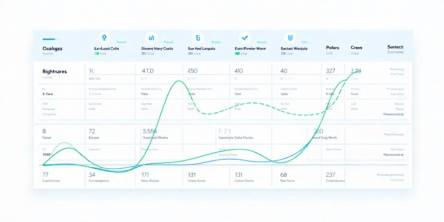Which Is The Best Mobile App Development Technology?

Probably getting a great app idea is not that tough, however finding an appropriate approach for implementing it, is easier said than done. Despite the task of selecting the right source to get your app developed; a mobile app development company or a developer such as mobile application development Sydney, another most significant job is to opt for a precise technology platform.
There are many alternatives for mobile app design and development approaches you can either build a native iOS app, Android app, responsive web app, or a cross-platform app. If you decide to build an app for only one platform due to the limited budget, definitely you have to lose half of the potential users. This way, each platform comes with certain pros and cons; although at the end of the day, the choice is all yours.
Surely, the prerequisite to making this complicated decision is to know a bit about the various technology choices available. This will help you to converse the options with your Mobile App Development agency or developer.
Let’s have a quick look at some of the effective mobile app development technologies that you can go for:
Native App Development
A Native app is one which is built on a single platform like Android, iOS, BlackBerry OS or Windows phone.
If you need to create an app for Android, it will necessitate learning Java. As Java has a less learning curve and is a common language, it’s not that difficult to get expert developers. Further, tools like Android Studio, Eclipse are available to build robust and high-quality Android apps with fewer efforts.
Apart from this, for creating iOS apps your developers will require expertise in the Objective-C language which is quite complicated, programming languages. The relief is Apple offers its developer community with useful tools like Xcode to make native apps.
Windows phone app development is greatly supported by Microsoft and it is recognized as best for making an enterprise app. Building an app for Windows Phone generally requires knowledge of C# or VB.NET languages. Microsoft offers a great tool called Visual Studio for making an app.
Pros
• Has aptitude to optimize the user experience
• Runs smoothly and quickly, since designed particularly for one platform
• No limitations for advanced user interface customization
Cons
• Have to start everything from scratch, when want to develop and launch the app for more than one platform
• No code can be shared between the different versions of separate apps
When To Select Native App Development?
• If you want to make a complex app where the user experience is the key element
• If the app needs heavy data processing
Web App Development
Web apps are basically categorized as responsive, traditional, and adaptive apps. Traditional web apps generally comprise any website.
A responsive web app is one that requires a special mobile app design so that it can suit a mobile device like an iPhone or tablet on which it appears.
On the contrary, an adaptive web app doesn’t require altering its design. It will show the same design, although it will adjust to suit the diverse screen sizes of any mobile device.
Pros
• The startup, support and maintenance, cost is much lesser than a native approach
• Skilled developers are readily available since the web apps are developed with the most popular programming languages
Cons
• The performance will be much slower as compared to the native app
• User experience won’t match a mobile app that users are expecting
When To Select Web App Development
• If require comparatively simple interactions
• If you have a taut budgets
• Majority of data processing of the app can be done on the server
Hybrid App Development
Hybrid mobile apps are basically cross-platform apps but provide the user interface using an embedded web browser and languages like HTML, Javascript, and CSS. HTML5 hybrid apps are built with Trigger.IO, Ionic Framework, Cordova, and Telerik Platform.
Pros
• Code can be shared between various versions of the apps across devices
• Faster development time, as the core part of the app is built using web technologies
• The core of the app can be updated devoid of going through the AppStore
Cons
• Some native code may need to be written, as not all code can be shared
• As interaction is done via the embedded web-browser control, the speed can be impacted
• Less reliable, fast, or smooth as compared to native apps
When To Select Hybrid App Development?
• If your app will mostly deliver content
• If the app needs to be cross-platform for business outcome
Conclusion
With technology advancement, the mobile app development platforms will also continue to evolve and thereby making a correct decision is going to be even tougher. What you need to do is, stick to your strategy and recognize your market, the performance requirements, and last but not the least, your budget.
Similar Articles
Food delivery applications, including Uber Eats, DoorDash, Zomato, Swiggy, and Grubhub, generate large volumes of valuable data.
Modern businesses are drowning in communication overload, and much of that burden stems from outdated tools that simply can’t keep up
Building lending software isn’t just a technical project—it’s a business decision. Whether you're a fintech founder or part of a traditional lending institution trying to go digital, three questions will shape everything that follows
Learn why robust security is crucial for super app development. Explore key strategies and best practices for mobile app development security.
Walkie-talkies with an extensive reception capacity have changed significantly when it comes to portable communication by displaying cutting-edge features with seamless connectivity that covers more than just the state
USB-C technology has revolutionized the way we charge our devices, offering faster charging speeds, higher power delivery, and universal compatibility across multiple devices
Discover expert mobile app development strategies to create a viral app that attracts users and boosts engagement
Optimize app localization for iOS users across the EU with language, cultural, and regulatory adaptations. Engage users and boost retention with these tips!
Discover the top 10 mobile app development trends of 2024! Explore 5G, AI, AR/VR, blockchain, and more to stay ahead in the ever-evolving app development landscape.









